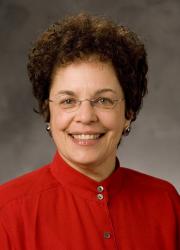Description:
It is a common misconception that everything we need for medical decisions can be found by “googling.” This approach is particularly inadequate when decisions are ethically complex and emotionally fraught, family caregivers are older and frail, or the circumstances or outcomes are potentially uncertain and unpleasant. In this workshop, Lisa Gwyther highlights the importance and key components of being an effective navigator for families facing eldercare decisions. Among the salient skills she describes are helping family members communicate with each other, modify their expectations, identify the relevant pieces in what can be overwhelming amounts of information, and find where their choices lie. Ms. Gwyther will present a framework to facilitate ethical decision making, which involves culture, context, and resources. She will also illustrate these points with video vignettes and the firsthand family-care experience of a social worker in dialogue with Ms. Gwyther. Emphasis throughout the talk will be on family resilience and the power of targeted timely help in navigating difficult ethical decisions.
Trainer:
 Lisa P. Gwyther, MSW, LCSW is an associate professor in the Duke Department of Psychiatry and Behavioral Sciences, a Senior Fellow of Duke’s Center for the Study of Aging and Human Development, and an original core faculty member of the Institute on Care at the End of Life at the Duke Divinity School. She founded and continues to direct the Duke University Center for Aging’s Family Support Program, served as president of the Gerontological Society of America, and directs education for the Joseph and Kathleen Bryan Alzheimer’s Disease Research Center at Duke. She is a prolific scholar, with more than 100 articles, book chapters, and books, as well as an award-winning documentary filmmaker on aging and family care. Throughout her nearly 40 years working in aging, she has won numerous awards, including distinguished social work practitioner (by the National Academies of Practice), top 20 people who have made a difference in US long term care (by Contemporary Long-Term Care), and Agency of the Year for the Family Support Program she founded (by NASW, NC Chapter).
Lisa P. Gwyther, MSW, LCSW is an associate professor in the Duke Department of Psychiatry and Behavioral Sciences, a Senior Fellow of Duke’s Center for the Study of Aging and Human Development, and an original core faculty member of the Institute on Care at the End of Life at the Duke Divinity School. She founded and continues to direct the Duke University Center for Aging’s Family Support Program, served as president of the Gerontological Society of America, and directs education for the Joseph and Kathleen Bryan Alzheimer’s Disease Research Center at Duke. She is a prolific scholar, with more than 100 articles, book chapters, and books, as well as an award-winning documentary filmmaker on aging and family care. Throughout her nearly 40 years working in aging, she has won numerous awards, including distinguished social work practitioner (by the National Academies of Practice), top 20 people who have made a difference in US long term care (by Contemporary Long-Term Care), and Agency of the Year for the Family Support Program she founded (by NASW, NC Chapter).
Clinical Lecture Series at the University of North Carolina at Chapel Hill School of Social Work